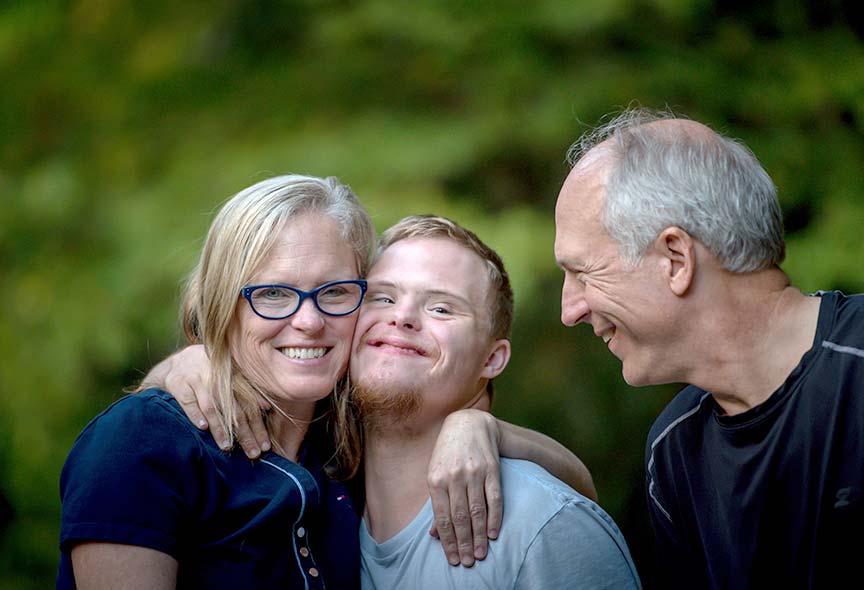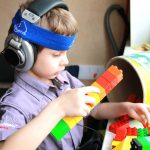I frequently walk the hallways of our private practice and my ears pick up the sounds of enjoyment, laughter and escalating arousal in a fun way. Whenever I hear a child produce a deep belly laugh, my heart warms within me and I simply have to share it with my own smile. When children run up to us in the waiting room and clearly show looking forward to their sessions and it is “me, me, me!” it is a profound moment of joy that fills my soul! Of course my thoughts wonder in the direction of what this must mean for parents?
We are living in a culture today, where product is celebrated much more than process, a difficult fact to reconcile with children, because all development is process. When we “expect”, we demand performance, and this performance may be elusive in the child that is still developing. I wonder how the parent is coping with messages such as: “You only have this window of time” or “ You have to close the gap to get him or her ready”. What are professionals really saying to the parent?
That the child is in dire need of performance with an ever-changing time line that increases anxiety?
That each time the parent witnesses a milestone in their child, they already start thinking of the next one?
- That when the child shows behaviors that seemingly was overcome before, the child must be “regressing”?
- That when the child melts down it must be something we (the parents) are doing wrong, the therapy is not working?
- As soon as the child plateau’s, we worry if the child is “standing still” and the push comes to find something else that works better?
- That the child is to be viewed through a lense of weaknesses, forgetting the multitude of strengths to be found in each person?
When we “expect”, we demand performance, and this performance may be elusive in the child that is still developing. I wonder how the parent is coping with messages such as: “You only have this window of time” or “ You have to close the gap to get him or her ready”. What are professionals really saying to the parent?
We also live in culture where family time is becoming less frequent and the intimacy this creates is elusive as time is a factor to consider. I want to provide parents with a few points to ponder:
- If typical development was good enough for your typical child, it is going to have to good enough for atypically developing child.
- Development is gradual, always an every day process, but the evidence in “product” goes in “hiding” as the child works the subconscious brain to consolidate the new information.
- When the child does not show progress in one direction, always look if anything else is changing for the better, as it is a common occurrence in early development that each skill often is developed separate, then becomes integrated with the rest. While this happens previously attained skills can go into “hiding”.
- That developing children are always living in the moment and are not worried about their school placement for next year or who they going to marry one day. The parent’s worry does not always match where the child is at.
- Development continues to develop even after the therapy session is over.
- When we expect more of the child than the child perceives he or she can cope with, we are asking them to create compensation and work very hard, increasing their arousal and threshold for frustration.
- The child does not know that his / her body is receiving information differently, they simply “cope” so by the time we challenge them, they are already anxious and working so much harder to overcome.
- What kids want most of parents are their attention, love and validation.
What to do?
Spend time with your child doing the things they like, even if it is 15 minutes
- Observe your child and find moments you can validate and give them compliments
- Find what they doing well and focus on it, rather than what they are not accomplishing yet
- Connection before correction, your relationship comes before your expectations, so the child would be more ready to accept challenge
- Revisit your family time over dinner and make that time special, talking about lows and highs. There is a reason why vacations are usually good for all in the family. Everyone is less stressed, less expectations, simply enjoying each other more. You do not have to do this all day. Just continue doing this over specific times and let the child know you are interested in what they are offering from themselves.
- It is the warmth in relationships that we all crave and that is a function of being human, your child is no different, they crave as much time with you in simply bonding and having their secure base (you) to surround them with emotional security.
- Stay in the moment, they will develop anyway without your anxiety of needing to propel them forward. Of course there is place for your anxiety and discuss this with your child’s therapist or your own therapist, you have a right to feel worried about your child’s future.
I hope this is a helpful start. Also know I am doing a webinar on “10 Golden Nuggets to empower your parenting” on September 13, 2017. Please contact me at maude@atotalapproach.com if you want more information.








